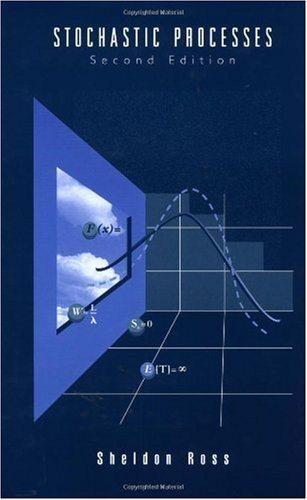Suppose that two independent sequences X1, X2, ... and Y, Y,... are coming in from some laboratory
Question:
Suppose that two independent sequences X1, X2, ... and Y, Y,... are coming in from some laboratory and that they represent Bernoulli trials with unknown success probabilities P, and P2. That is, P{X, = 1} = 1 P{X, 0} P, P{Y, = 1} = 1 - P{Y, = 0} = P2, and all random variables are independent To decide whether P, > P or P > P, we use the following test. Choose some positive integer M and stop at N, the first value of n such that either - X++X (Y + + Y) = M X + + X - (Y, + + Y) = -M. In the former case we then assert that P, > P, and in the latter that P>P, Show that when P, P2, the probability of making an error (that is, of asserting that P> P) is 1 P{error} 1+AM and, also, that the expected number of pairs observed is where M(AM-1) E[N] = (P- P)(AM + 1)' P(1 - P) P(1 - P) (Hint. Relate this to the gambler's ruin problem)
Step by Step Answer:







